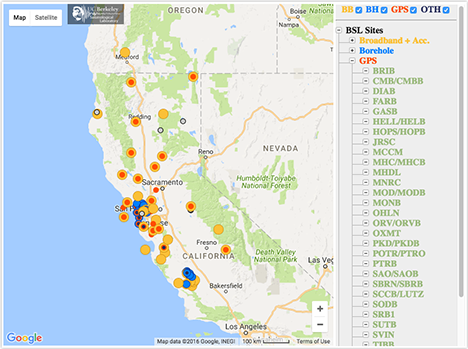Time series processing at the BSL


BARD data are processed using the GAMIT/GLOBK software developed at MIT and SIO. The loosely constrained solutions produced by GAMIT are combined with PBO and global IGS solutions using a Kalman filter approach and stabilized to an ITRF2005 reference frame within GLOBK.
Processing occurs within 24 hours using IGS rapid orbit information and the results are used in a daily update of the station position time series. When rapid PBO and IGS global station solutions become available (usually within 2-3 days), they are combined with the rapid BARD solutions using GLOBK and the time series is again updated. Final processing with both GAMIT and GLOBK occurs when IGS final orbits and final PBO solutions become available (1-2 weeks); the time series is then updated for the last time with the final positions.
After each update, both raw and clean time series are generated. At this time, cleaning consists only of removing common mode errors. The common mode errors are determined by stacking the residuals to a trend for all BARD and selected Bay Area PBO stations (see this file, REGIONAL_STATIONS.) These are posted to the individual station page of each BARD sites, accessible via this link.
